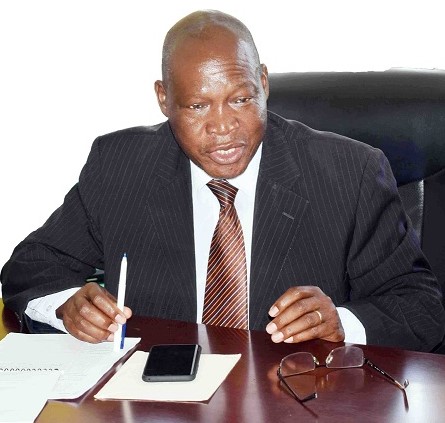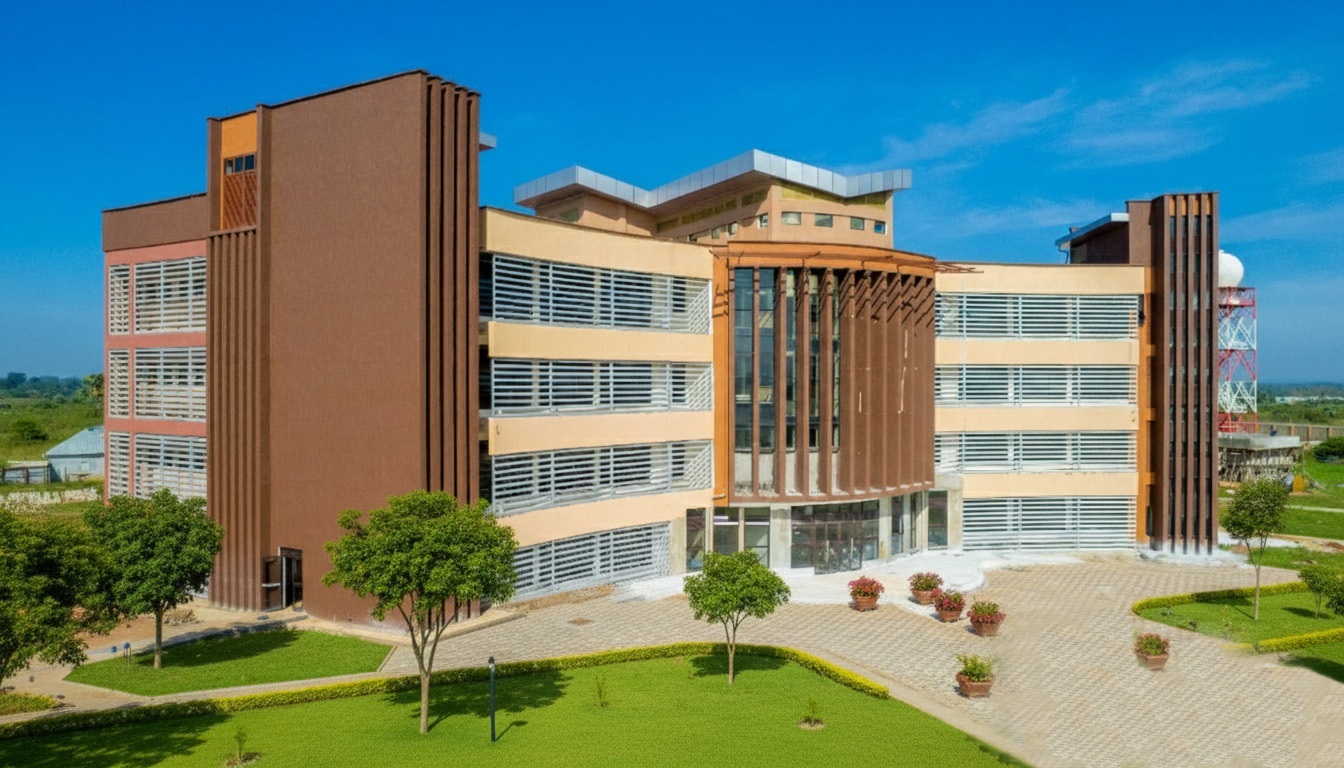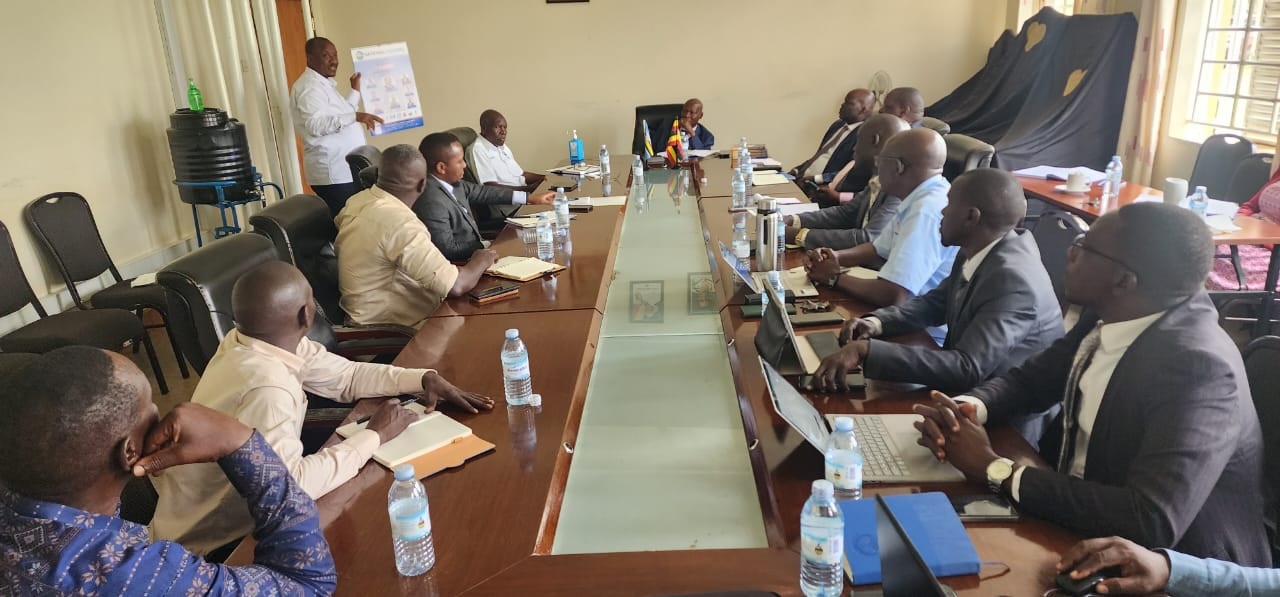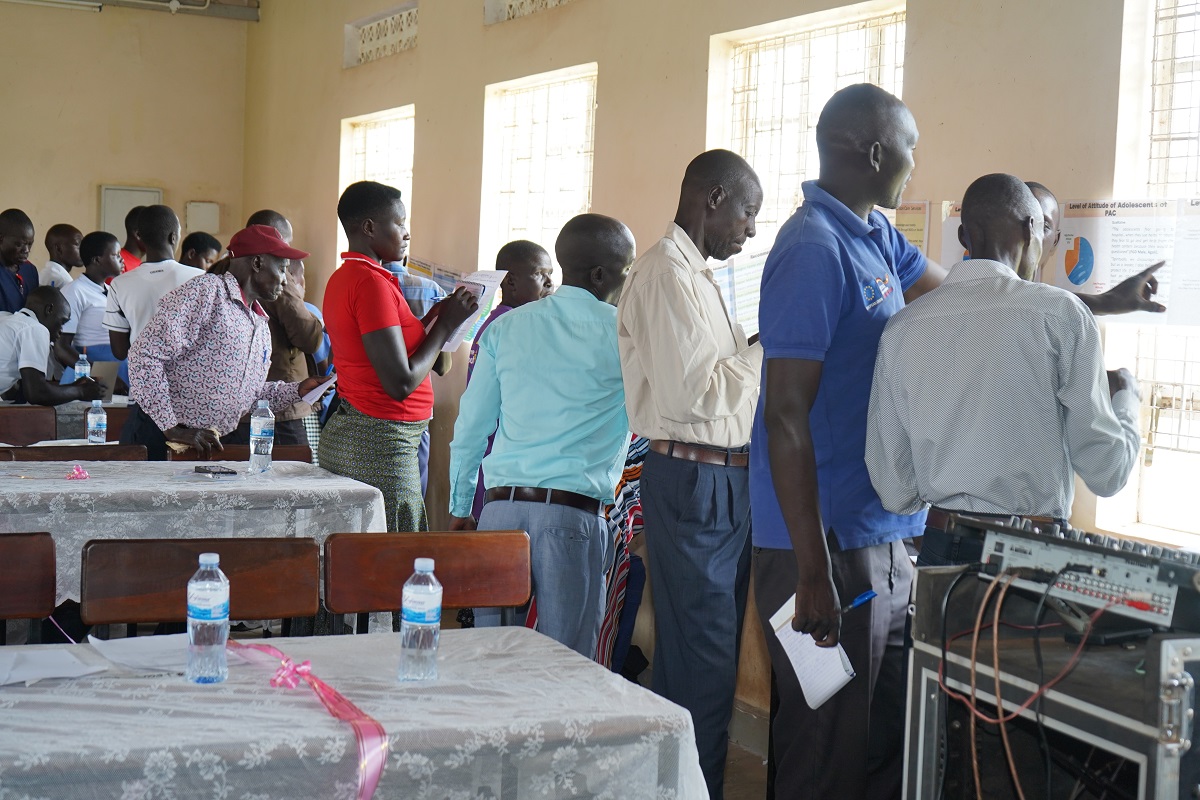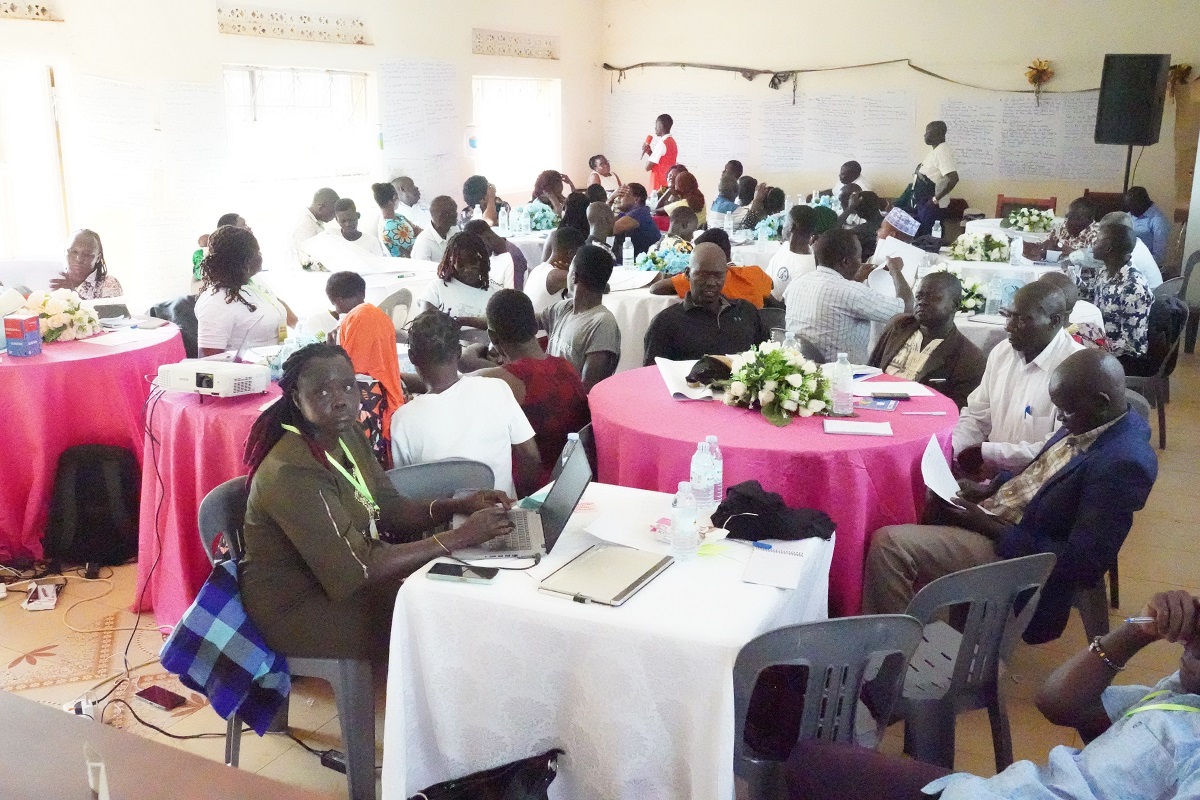By Patrick Opio
Senior Communications Officer
Lira University has embarked on growing cocoa with 20 hectares of land allocated for this farming activity.
While addressing participants at the Public Lecture, on September 26th 2024, Senior Lecturer, Dr. Laury Ocen revealed that the University has established a Cocoa Research Centre, with aim of boosting cocoa growing, educating and training farmers in northern Uganda, doing research on cocoa farming and processing the crop.
The Theme was: “Capturing the momentum and Harnessing Opportunities in Cocoa Economy in Northern Uganda: The Role of Lira University.”
Dr. Ocen lauded Professor Jasper Ogwal Okeng, the University Vice Chancellor, for hatching this vision and allocating 20 acres of land in Lira University toward this project.
“The VC has likewise encouraged lecturers who are inspired to grow cocoa but have challenges of land to liaise with him and use his personal land in Ngai, also indicating that there is possibility of scaling up our production capacity by giving more land in Amolatar district,” Dr. Ocen reveals.
The University has picked the momentum very well and formed a management committee called Lira University Cocoa Research Centre, whose mandate is growing, processing, marketing, and educating the community in, around, and far about, the most productive technologies and methods of managing cocoa.
On exposition of the theme, Dr. Ocen noted that there is something we call a “momentum” in the political economy of commercial farming in Lango- a gusto of change, new influences, new economies, new innovations, among others.
He elucidates, “The first momentum is that of Discovery; what I would call the rebirth of knowledge in the sector of agriculture in Lango and northern Uganda. The overall ethnography of agriculture is changing through new discoveries of knowledge in this sector.”
“We have for instance discovered that coffee, cocoa, palm oil can grow in Lango and indeed the entire northern Uganda. Colonial epistemology, or what I refer to as Received Knowledge kept us deceived or misinformed for a very long time that cotton was the only crop that could inscribe our names in the world markets,” Dr Ocen explains.
He asserts that the same type of knowledge mistakably drew a binary of labels such as cash crops on the one side and food crops on the other. “We therefore treated seseme, beans, maize, etc as food crops and adored cotton as the only reliable money fetching crop. Now there is a new momentum, the fish scale has fallen off our eyes, our eyes are now open, that any crop well cured, managed, processed, and given value addition can be a lucrative cash crop,” he adds.
“Our eyes are open that cocoa can transform us into millionaires within a period of 3-5 years only. We need to capture this momentum with all our might, and with all our souls, and with all our beings,” Dr Ocen emphasizes.
Dr. Ocen, also the chairperson of the Cocoa Research Committee explained that there is a paradigm shift, happening faster than expected in the way farmers in Lango are refocusing attention to perennial crops as opposed to the conventional seasonal crops including cocoa, coffee, and to a small extent palm oil.
He revealed that there is also a dynamic intellectual revolution in agricultural pedagogy of practice in that farmers are making tremendous efforts towards building ecological justice, based on agro-creativity, innovation, and value addition on land as opposed to the past where farmers relied on good weather provided by nature.
“The momentum is ripe and available for those with inspiration to grab. This moment is provided and supported by availability of technology, social capital, research, and knowledge exchanges occasioned by increased movement of farmers, improved communication networks and systems that benefit the growing and production of perennial crops that are more risk free compared to seasonal crops,” he explains.
The other key momentum Dr Ocen noted was that “we need to capture the possibility of partnership and collaboration in the agri-chain. Right now, we are building partnership and collaboration between Lira University and Trinity Mixed Farm. But we need to expand this collaboration or partnership to include research organizations such as NARO, Ngetta ZARDI, out growers communities, factories and pharmaceuticals, beverages companies, businessmen and women to explore all aspects of value addition possible in the cocoa economy.”
He added that there are great opportunities in northern Uganda. “First, there is the culture of solidarity economy. A study of ethnography of farming among the Lango, Acholi, Ateso and other peoples of northern and eastern Uganda indicates that agriculture anchored on collective labour, referred to as “awak”, or “alulu”. Elsewhere there was puru kongo, kongo dira, etc.,” he reveals.
According to Dr Ocen,this culture of collective labour, or collective farming is still there. “In as much as we have technology that can replace awak or alulu collectively is still a resource that we need. There is collectively that has promoted cash rounds, SACCO, manifesting in group sales such as oribcing, ocokcan, omakwat. These are cultural and social opportunities that cocoa economy will surely benefit from in promoting of savings, bulk marketing, etc.,” he further explains.
Dr Ocen said that ther is plenty of land in northern Uganda, an opportunity that needs to be tapped. “Customary land tenure in Lango still leaves a lot of land collectively owned and sometimes collectively used. If a customary community, say a clan, or a lineage decides to engage in a single agri-enterprise such as cocoa, they can still be able to use their customary land productively, instead of fragmenting or dividing the land among the children,” he explains.
Other topics discussed were “Agronomic Practices in Cocoa farming for sustainable production”, “Business and Market Potentials and Financial security”, “The Nexus between Cocoa Farming and Community Outreach Mandate of Lira University,” “Personal Growth and Preparation for the future,” “Cocoa growing in the context of sustainable development,” and “Vision for expansion and partnership.”
The facilitators of the Public lecture were; Frederick Ogwal Oyee(Proprietor of Trinity farm, a successful cocoa farmer in Dokolo), Denis Obote (Senior lecturer), Assoc. Prof. Ejang Mary, Assoc. Prof. Bernard Omech(Director Research and Graduate Studies), Assoc. Prof. Edward Ojuka and Ms Emma Aceng (Dean of Students) who graced the function on behalf of the Vice Chancellor.
The moderators of the discussions were Gad Kwizera, Tom Omute and Assoc. Prof. Judith Abal.


